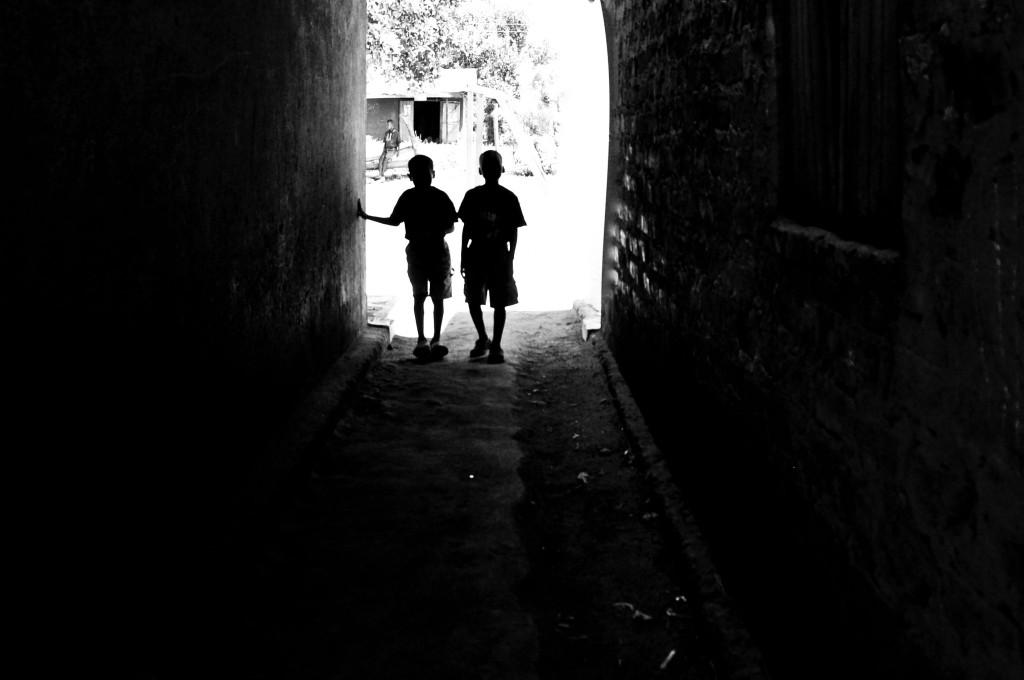We have this petri dish of a home. Having seven different bodies doesn’t only mean seven different personalities and seven different Myer’s Briggs’ scores and seven different body types. In our house, we have seven different beginnings and seven different histories, started in three different countries and cultures. There is a lot within these walls to observe about the human heart and how the waves of life make an impact.
So I’ve been watching, with this babe — the one my body hasn’t just held but formed — and wondering if I’d see a difference not only in him but in how he relates to me. Some want to call him a “child of my own“, but they’re all my own (and sometimes I’m actually at risk of overlooking the one that has my DNA for the others who’ve called forth a greater fight from within me for their grafting into our family).
Though there is something different and for nearly two years I haven’t been able to name it — until this past summer when I was away from my children for a night. I laid on my hotel room bed and talked to God and had that rush of understanding that back-filled two years worth of interacting with him.
“Up, please,” I saw the wide eyes of the babe in my mind.
Arms raised in the air, this toddler (whose epicenter mimics the belly of a forty-five year-old ex-athlete), looks up with expectation and says this one phrase more times than any other in a day. It’s the first one he learned. At 7:30am he’s squeaking it, his voice rusty from hours of sleep and his body ready to be held. At 9:30am it’s a cry for relief. He’s been in the sibling-care rotation and needs the respite of mommy’s arms. And sometimes it’s said with a creeping lower lip and eyes brimmed with tears.
Up please — the incessant ask of the tethered child. Out into the world of blocks and puzzles and rowdy siblings and back into the place of sure-safety. All day long, I’m reminded that I have one that needs me. ‘Cause the diaper changes and the lunches and the baths do remind me on occasion, but not like that baby reach.
Four others need me too.
But they never got to say “up, please.”
The needs of former orphans are often masked. Children raised on the streets or in foster care or at an orphanage among many earn their mask — it’s the survivor’s emblem. Some of the hardest workers are former orphans. They bury their “up please” behind a set gaze and eyes that don’t cry or they cry when it shouldn’t hurt as a means of controlling exactly how and when they get love. Shame of abandonment or rejection can shove that vulnerable “up, please” way down as if to say: I never want to feel that ache again, of needing and not receiving — so I won’t ask the question that leaves me with my arms in the air and no one on the other side to respond.
“Up, please” is dangerous for the child who’s not been tethered.
And for you. And for me.
Because somewhere in that grafting, when we said “yes” to Jesus — at seven or sixteen or twenty-three — the inertia of humanity and life has taught us that “up, please” is for babies and we don’t know how to be babies to God.
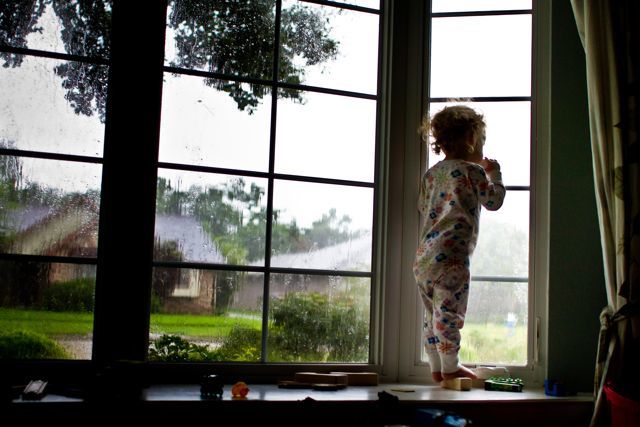
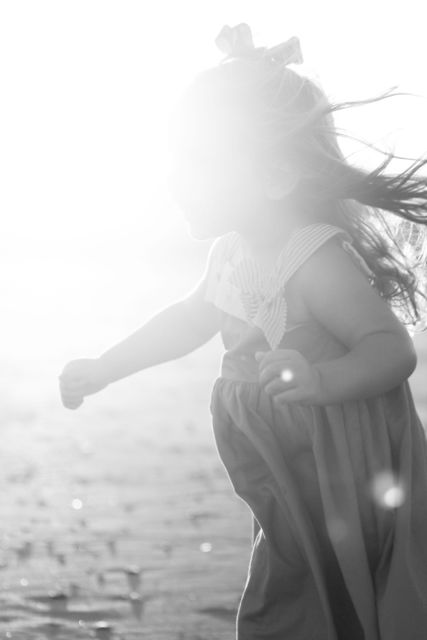
And He said: “Truly I tell you, unless you change and become like little children, you will never enter the kingdom of heaven.” Matthew 18:3
It’s on our grandmother’s wall and in cartooned story-books. We know it, but if we’re honest we don’t like it.
I’d rather not be like a child. I don’t want to fumble over my words in a crowd or have my daughter’s wounds get triggered in public, for others to see. I don’t want to be the medical conundrum. I don’t want my eyes to be red at church, from a “discussion” I had with my husband before I arrived. I don’t want to be pushing forty and needing to ask the question: what broke at fifteen to make me still.keep.struggling. with that same issue? I don’t want to bleed, for too long at least.
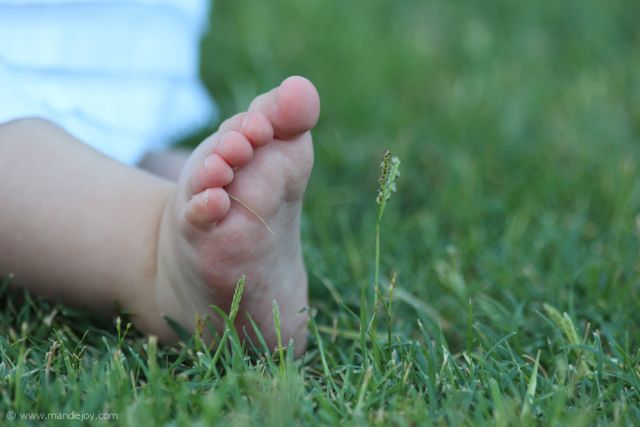
I don’t want to be diapered and drool.
I don’t want to need.
I’ll say it again: if I’m honest — I don’t really want to need Him.
Friends, we’ve been duped, just as my once-orphaned children had been duped. (Though I must say, they’re seeing it earlier than I did and walking out the healing a decade before I ever did.) We could spend a lifetime hiding behind “I’ve got this thing figured out” and running from the raw vulnerability that can turn a stalwart God follower into a forever-lover.
I want to crawl out of weak skin and learn the five points on how to grow my passion for God — ’cause wouldn’t we all rather learn it in a sermon than with our lives? Yet He keeps inviting me to be bare with Him — to literally, sit before Him and let down my heart and ask the questions and wait on His answers. Be vulnerable and stay vulnerable is quite the invitation in a world where efficient mastery and polished appearances are praised.
At three a.m. when the baby’s awake and mind-numbing scrolling allures me, “Up, please” is what He created me to say. When the child is bristling and a playdate sounds easier than a conversation with God: “Up, please.” The two o’clock in the afternoon quiet that exposes a bare heart more than a bare schedule — in lieu of checking off tasks: “Up, please.” With a still unrepentant perpetrator or a still unrepentant friend: “Up, please.” Standing beside a girlfriend who has what you want. You could push to get it or say these words: “Up, please.” Lost in the crowd of many who barely know your story, before you open your mouth to tell them: “Up, please.”
The dozen moments in a day that I resent because they remind me that I’m weak are the ones when He wants to hear my faltering voice: “up, please.”
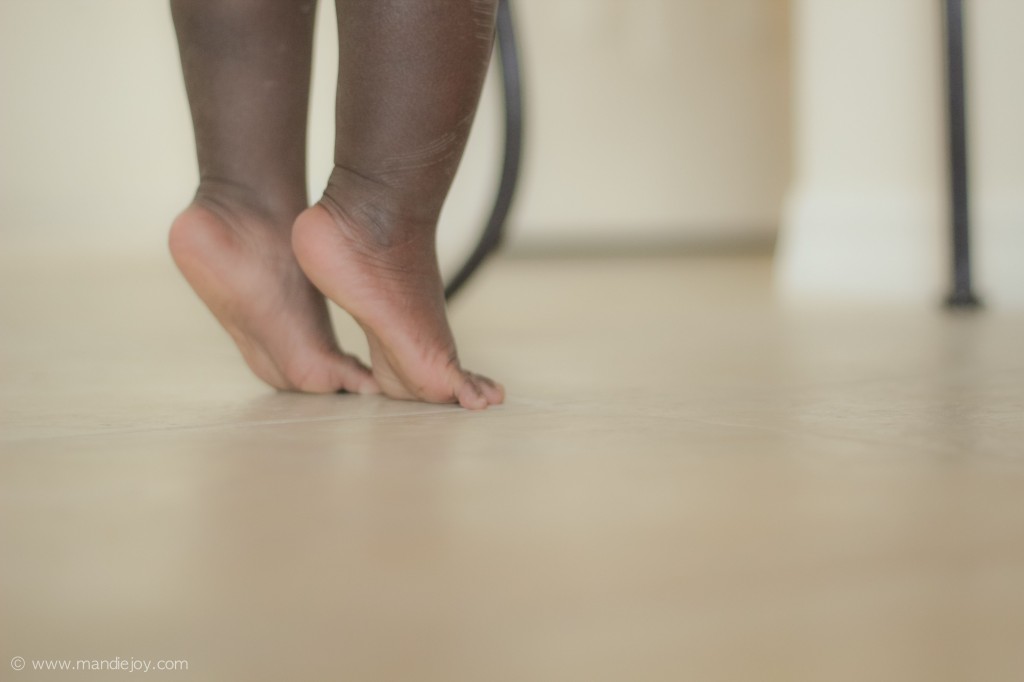
Needy tears have become a treasure here. When pain isn’t shoved back into submission through self-flagellation or masked underneath layers of “I’m fine!” but instead spills out through eight and ten and eleven year-old versions of “up, please,” we celebrate. We give long cuddles, just to re-affirm them that hearts that are bleeding raw before God are the ones on their way to coming alive.
[And for those of you adoring God with us over here or those intrigued by the notion of adoration: adoration isn’t for the strong minutes of our day, it is for when we’re tired and restless and grumpy. Vulnerable. We bring our raw selves — yup, the “this is how I’m really feeling right now, God” — with the expectation that He can handle it and that we’re not going to stay there. Adoration takes all of me — right where I am in that moment — and puts it at the feet of all of Him. I get changed as I adore.]
For Your Continued Pursuit: Romans 11:17-18 | Genesis 3:1-11 | 2 Corinthians 12:9-10 | 1 Corinthians 1:27-28 | Psalm 34:18
Pictures compliments of Mandie Joy and Cherish Andrea Photography.

